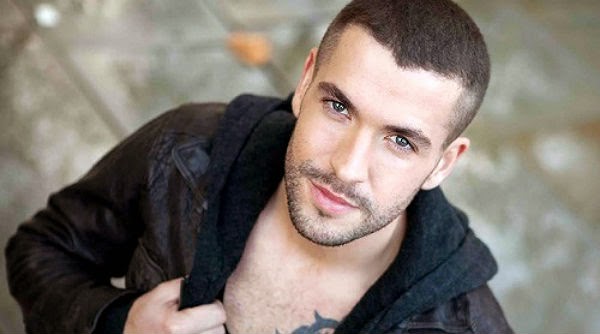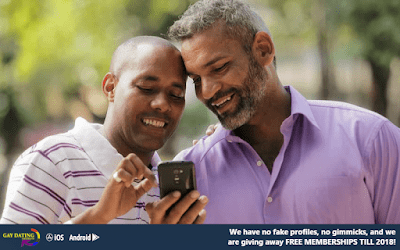How Gay Men Can Overcome the Hurdles and Find Mr. Right
Written by Joseph • March 31, 2015

OK, so, you’re gay, you want to find a partner and eventually a husband; someone with whom to share your life. However, you just can’t seem to meet the right guy or make the right connection. You keep coming up empty-handed, stymied in your efforts, no matter what you try. All of this talk of […]
OK, so, you’re gay, you want to find a partner and eventually a husband; someone with whom to share your life. However, you just can’t seem to meet the right guy or make the right connection. You keep coming up empty-handed, stymied in your efforts, no matter what you try. All of this talk of legalized marriage just seems to make things worse, adding pressure from friends, family, and even yourself.
You think, maybe it’s just not possible for gay men to have long-term relationships. There must be some truth to the old joke: “What does a gay man bring on a second date?” Response: “What second date?” You would be ready to throw in the towel, if it weren’t for your best friend who met someone and is now in a happy relationship for the past 2 years—or that middle-aged couple who live in your building and who just celebrated 25 years together with a trip to Paris. So you end up wondering “What’s the matter with me? What am I doing wrong?”
“The real truth is, I am unlovable.” In my experience, this internalized belief is the poison that prevents some gay men from building a healthy relationship, and also why many mess up the ones they already have. There’s a reason for this. Few of us grow up unscathed by family, peers, and a society hostile to our attractions and behaviors. Some of us have been bullied as children; physically, verbally, and emotionally abused at tender ages by our peers and family members for being gay before we even recognized and understood our same-sex attractions. This toxic internalized belief is further ingrained if we have been treated harshly (or abandoned) by our fathers, the first men in our lives to teach us about our value in the eyes of other males. Sadly, these wounds are difficult to heal, and as a result, can leave gay men with the sense that we are unlovable and thus unworthy of love, affection, and happiness.
In my personal experiences, these feelings can be so deeply hidden as to be difficult to recognize, articulate and resolve. My clients rarely, initially state or even recognize that they feel unworthy of love, but their behaviors tell a different story. One telltale sign is obsessive jealousy. Once in a relationship you may feel a constant need to control the other partner to make sure he stays connected and faithful to you. In addition, you seek never ending reassurance (checking his cell phone, needing to know where he is at all times, demanding he tells you he loves you all of the time–you get the idea). What belies these feelings and behaviors is the fear that you are is so flawed that you cannot attract and keep a partner without monitoring and controlling him—even though these behaviors ironically push him away.
Another way feeling unlovable manifests is in the choice of partner. Read on.
“It is impossible to meet the right guy.” No doubt, finding the right partner is not easy. Remember, you are looking for a life mate; that glass slipper is hardly one size fits all, and very few men will qualify. For sure, so much of the gay male world is way too focused on looks, youth, the gym, partying, and fast hookups; so searching for Mr. Right is like looking for a needle in a gaystack. However, feeling subconsciously unlovable or unworthy can again rear its head here through your choices. That muscled, tattooed bad boy is hotter than hell, and great in bed, but is he showing any sign that he is ready to settle down? You seek a man who wants a monogamous relationship, but do you really think you’ll find him on Manhunt, Grindr or Scruff? (Trust me, these prowling tigers do not change their stripes once they are hitched.) Perhaps you have a bit of a fetish for the strong silent type. (They always seem to ooze masculinity, don’t they?) But if you need sharing communication and emotional reassurance, you may find that the mysterious brooder is actually an unresponsive “cold fish” after a few months. Is he really the one for you? Or how about the guy who gives you the chase, sending hopelessly mixed signals that are impossible to understand, such as ignoring you for periods of time alternating with romantic texting—leaving you wondering “does he or doesn’t he?” Isn’t this a dead end? (Answer: Yes, honey, it is.)
Perhaps your close friends have rolled their eyes as they’ve watched you repeatedly making poor partner choices, trying to make husbands out of men who are unavailable. If you find yourself consistently in these patterns, perhaps you are, as the song goes,looking for love in all the wrong places. At a deeper level, this could be an indication that you don’t feel worthy enough to be loved—or, perhaps even more perplexing—you do not really want to be in a relationship and don’t know it yet.
“I should be in a relationship.” In the old days, when I was coming out, being gay had more of an outlaw quality. Nonmonogamy was a political statement, and gay rights advocates saw marriage as constrictive, patriarchal, heterocentric, flawed (perhaps due to the 50% failure rate) and therefore not worthy of pursuit, especially in light of how gay men of the era were still getting ejected from their jobs, homes, families and blackmailed and arrested for who they were. For sure, the pendulum has swung far in the other direction. Contrary to heterosexual fears, legal gay marriage has given the institution an enormous boost in importance. Where it’s legal, same sex couples are getting married in droves, and some gay weddings are so theatrical and over the top that they can actually be intimidating for a hilarious send up of this phenomenon). This can all translate into feelings of pressure to couple up.
Unfortunately, along with legal marriage comes the risk of inheriting straight society’s “couple-centrism,” which is the idea that being single is wrong, sad, and a sign of psychological problems that need to be “fixed.” This is just plain wrong. Not everyone needs to be in a couple nor should be. Many single gay men are happy, valuing their autonomy and personal freedom (like the muscled bad boy described above). There are things many men have to give up to be in a couple. No problem there, but one needs to be honest with oneself about his true needs and wants and do the (hard) work of freeing oneself from societal and family pressures.
Like that girl in Frozen, you need to “let it go.” Perhaps your hurdle is a previous relationship that you just can’t shake. I have worked with many gay widowers—guys with good relationship track records, who are anxiously seeking a new mate, but are sabotaging themselves in the ways described above. Upon close examination, we jointly discovered their worry that if they got romantically involved with someone else, they would be abandoning their previous mate. I have had several grieving gay men tell me: “If I move on, it will be like I am forgetting him” which is just not true.
A variation of this theme is when a relationship ends, but you just don’t want to let go of it—even if the guy is still alive. You might still be living together, or stay best friends. You are no longer official partners, but worry if you met someone, he would be upset—or perhaps you would, because it would be too painful to finally say good bye.
A wise teacher once told me that once we have been in a relationship, it never really fully ends—Even if we have been divorced or our partner has died, the heart never fully lets go. However, the good news is the heart’s capacity is not limited by physical space. Instead of getting rid of the old loves, the heart makes room for new ones—but we have to be willing to open up and welcome them.
So, how do we figure out what’s getting in the way and how do we fix it? Here are some ideas:
Know Thyself. For sure, a first step is to recognize your patterns. Does anything you have read thus far seem familiar? Even a little bit? Take the time to reflect on your behavior and how you might be getting in your own way. You might even ask one of your good, trusted girlfriends (of any gender) for their honest feedback. Be sure to give them permission to risk hurting your feelings. It might sting but it could be worth it.
Love Thyself. Many people just keep making the same mistakes without taking the time to pause, breathe and figure out what’s really happening. Do this in a loving way, giving yourself the messages of compassion, patience and acceptance—no beating yourself up! (Hasn’t the world done that to you enough?) Reflect upon what you learned from your family and peers about how lovable you are—or aren’t (!) Remember, as a gay man, you have survived lots of indirect and direct messages that there was something wrong with you, which has left scars. You are not alone. Gay men have been taught to be think of ourselves as unlovable. So now, make a promise yourself to intercept and interrupt any self-talk that continues this tendency.
Therapy? Many can figure out their behavioral patterns on their own and then proceed to change them. However, a good therapist can help you understand how wounds from the past, long-believed to be dead and buried, can reemerge like zombies when and where you least expect them. He or she can do this by helping you, 1) identify how you are getting in your own way; 2) figure out why you are doing this; 3) help you find ways to love yourself better and thus free you up to find men who are, in turn, healthy and good husband material, or 4) live happily single, as you were meant to be.
In the words of one our most prominent modern day philosophers, Ru Paul (who else?): “If you can’t love yourself, how in the hell are you ever gonna’ love someone else? Can I get an Amen?” Amen!
Have you found the right one, or are you still searching?

Join a gay dating site where you can meet single guys from any town or city. Rely instead on Gay Dating Solutions to do the work for you!
Don’t get fooled by FREE offers made by other sites. Gay Dating Solutions is offering a free 6 month promotion ABSOLUTELY no strings, request for credit card numbers, etc…it is the only site that is truly free to join!
Sign-up now: www.gaydatingsolutions.com
Like us on Facebook: www.facebook.com/GayDating101
Tweet us: twitter.com/GayDating101




